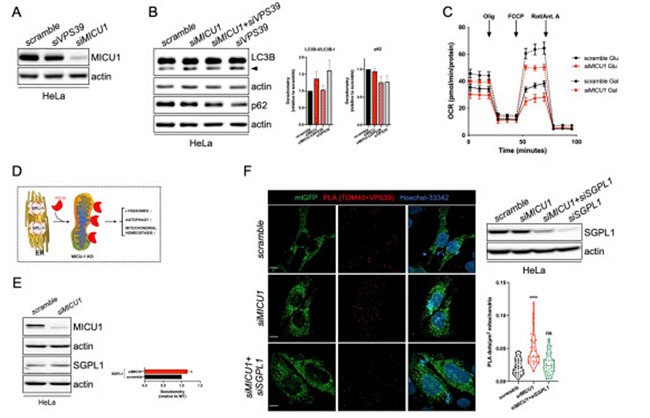Anti-SGPL1 antibody used in mitochondrial dysfunction research
Article: "SGPL1 stimulates VPS39 recruitment to the mitochondria in MICU1 deficient cells"

Mitochondrial energy production is finely tuned to interpret cellular needs accurately.
Adjusting mitochondrial bioenergetics is a critical adaptive mechanism of eukaryotic cells. When disrupted, it can cause neurodegenerative and metabolic diseases such as diabetes.
This study investigates novel molecular mechanisms by which sphingolipids (a particular class of lipids) might be linked to mitochondrial dysfunction.
Using our Anti-SGPL1 (HPA021125), the study highlights the role of sphingosine-1-phosphate lyase 1 (SGPL1) in the mitochondrial recruitment of essential proteins such as VPS39. In particular, the SGPL1-dependent redistribution of VPS39 to mitochondria may be a detectable common signature in cells carrying mitochondrial lesions.
This data reveals a previously unrecognized SGPL1/VPS39 axis that stimulates intracellular organelle interactions and sustains autophagy and mitochondrial homeostasis in cells lacking the oxidative phosphorylation system.
Read full article here.
Find out more about our polyclonal Anti-SGPL1 (HPA021125).
